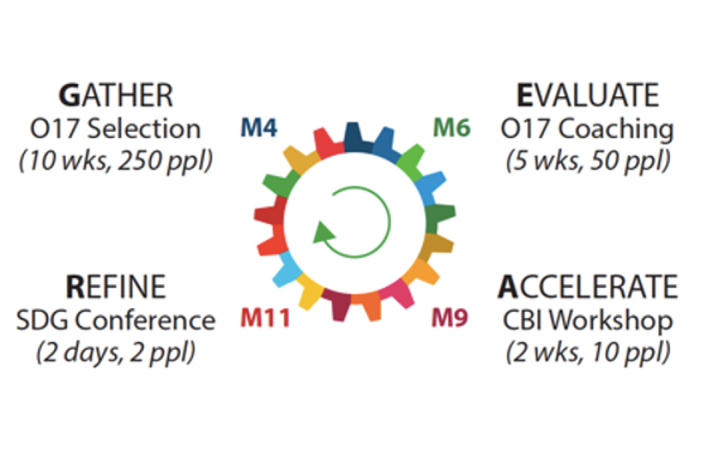Launched on 20 May 2020, a new consortium project Crowd4SDG will aim to examine opportunities for leveraging citizen science for monitoring climate impacts and achieving climate resilience. It is Horizon 2020 Research and Innovation Action supported by the European Commission's Science with and for Society (SwafS) programme. In addition to UNITAR, the consortium coordinated by the University of Geneva (UNIGE) includes a number of other leading European research centers and University: Spanish National Research Council (CSIC), Polytechnic University of Milan (POLIMI), Center for Research and Interdisciplinarity of University of Paris (UPD) and CERN.
Crowd4SDG aims to facilitate the process of tracking progress on Sustainable Development Goals (SDGs) by researching ways of how citizen science can support data collection and provide a complementary data source for tracking progress on selected SDG-related indicators with a primary focus on SDG 13. The project is also expected to give rise to grassroots innovations and showcase how they can help achieve climate resilience.
The project will run over 3 years through three GEAR (Gather, Evaluate, Accelerate, Refine) cycles that imply iteratively developing and testing new citizen science projects on an annual basis with online and in-person interactive activities (see image). Each GEAR cycle starts with an online selection and coaching of citizen-generated ideas, during an Open Seventeen Challenge (O17). Selected projects are accelerated during a Challenge-Based Innovation (CBI) Workshop and best projects are further refined at annual SDG conferences. In addition to climate change, each cycle will look into other SDGs: SDG 13 and SDG 11 (Year 1), SDG 13 and SDG 5 (Year 2) and SDG 13 and SDG 16 (Year 3). A key feature of the project is partners’ outreach to and engagement with diverse stakeholders, including UN agencies, governments, the private sector, NGOs, academia, innovation incubators and makers among others, playing a critical role in promoting climate and other SDG objectives.
As a lead for the impact assessment work stream of the project, UNITAR – working closely with other consortium members - will engage with national Governments, including National Statistical Offices (NSOs) as well as planners and policy-makers, to identify areas where citizen science could potentially provide much needed data, and address related quality considerations of citizen science-generated data from the perspective of policy-makers and official data producers. This work would be expected to lead to a series of recommendations on leveraging citizen science and related artificial intelligence work in support of monitoring the SDGs and climate response.
Given the launch of the project amidst current pandemic, Crowd4SDG will be also applying hands-on research and innovation methodologies to improve the quality and availability of data related to the broader Covid-19 response. It is expected that some of the lessons learnt from COVID-19 about data needs and data use for timely decision-making and the potential role of new data sources, including citizen science, will benefit other project objectives.
For project-related queries, please contact the Strategic Implementation of the 2030 Agenda Unit, UNITAR, at a2030@unitar.org


